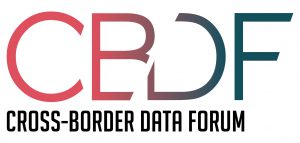‘EU–US negotiations on law enforcement access to data: divergences, challenges and EU law procedures and options’, by Theodore Christakis and Fabien Terpan, is the first article to present the context and the numerous challenges surrounding the EU and the US’ negotiations aimed at concluding an agreement on cross-border access to electronic evidence (e-evidence) for judicial cooperation in criminal matters.
It explains that there are strong divergences between the EU and the US about what the scope and the architecture of the agreement should be. The US government supports the conclusion of a ‘framework agreement’ with the EU to be followed by bilateral agreements with EU Member States—in order to satisfy CLOUD Act requirements. The EU wishes to arrive at a self-standing, EU-wide comprehensive agreement and is opposed to solutions that might lead to fragmentation and unequal treatment between EU Member States.
The article also:
-
- Presents a detailed EU Law perspective on all these issues, and refers to relevant precedents concerning the conclusion of law enforcement, data-related or other international agreements;
- Discusses the division of competence on e-evidence between the EU and its Members States; possible architecture for the agreement and options under EU Law; and the role of the respective European Institutions (Commission, Council, Parliament) in the negotiation and conclusion of such an agreement;
- Studies, using existing case law, what the role of the Court of Justice of the European Union (CJEU) could be in relation to such an EU–US e-evidence Agreement; and
- Examines, in a post-scriptum, what the effects could be of the CJEU’s Schrems II judgment on the ongoing EU–US negotiations, as well as the relevance of the CJEU’s 6 October 2020 data retention/collection judgments.
The article will be useful to anyone interested in transatlantic data flows as well as judicial cooperation matters and, beyond its specific scope, could be used as a ‘guide’ to EU Law procedures, options and precedents in relation to the conclusion of international data-related agreements.
To read the full International Data Privacy Law article, please click here.
These statements are attributable only to the authors, and their publication here does not necessarily reflect the view of the Cross-Border Data Forum or any participating individuals or organizations.

